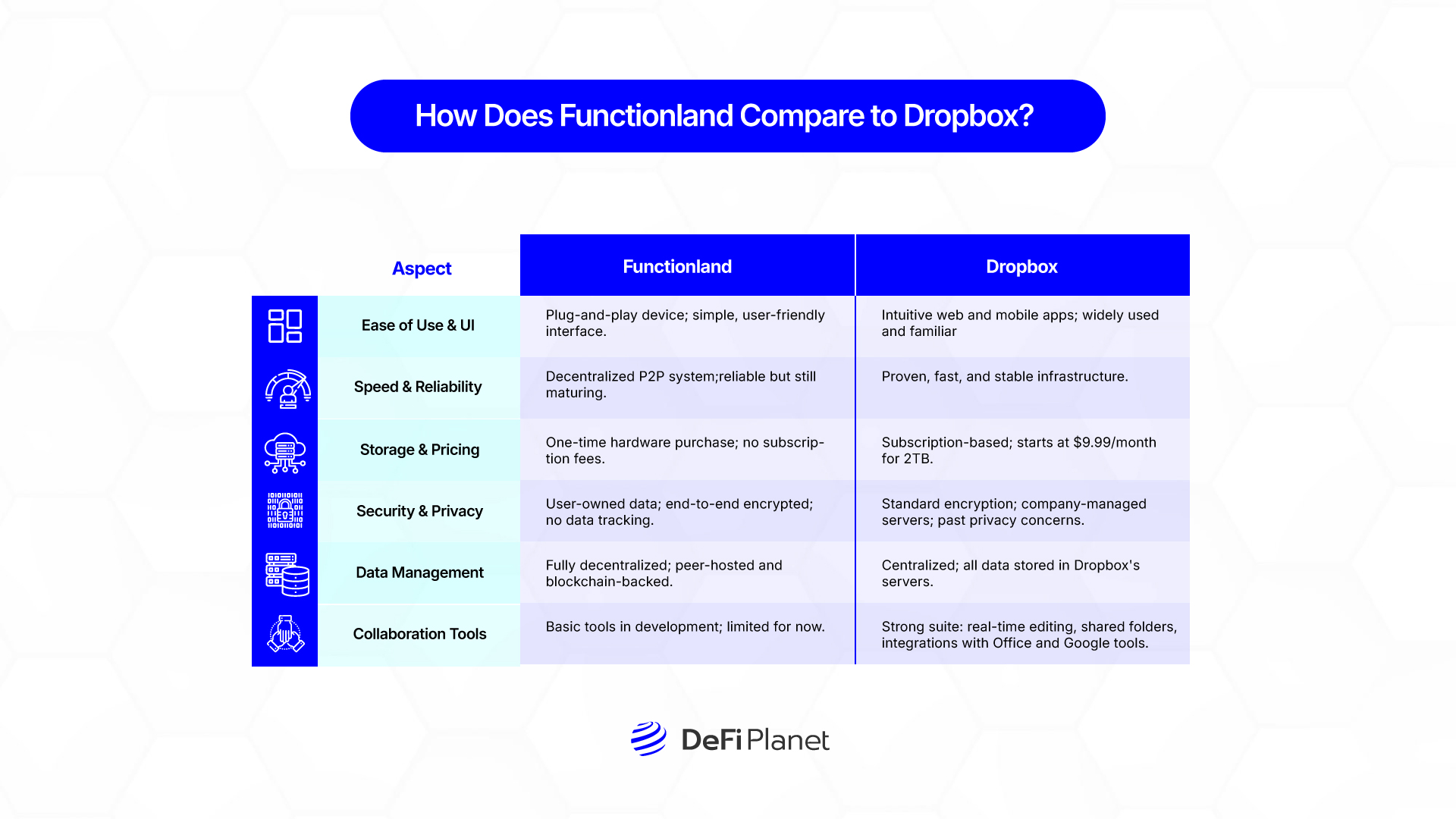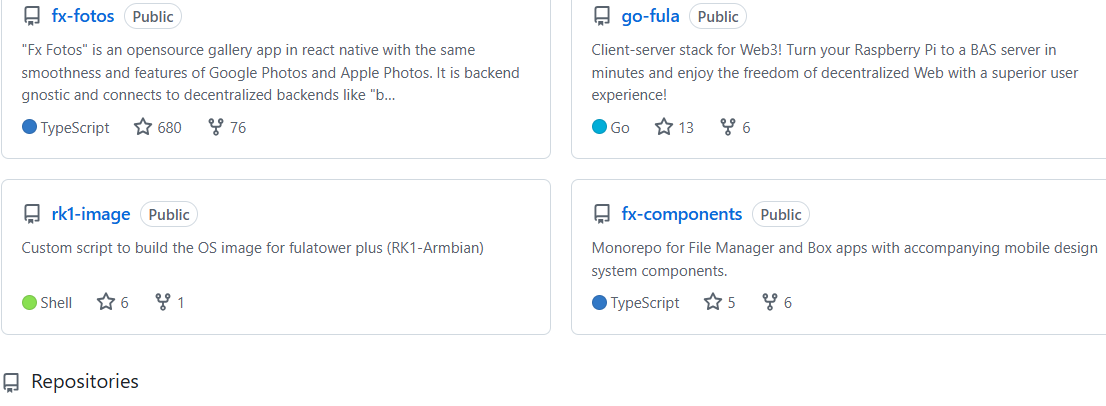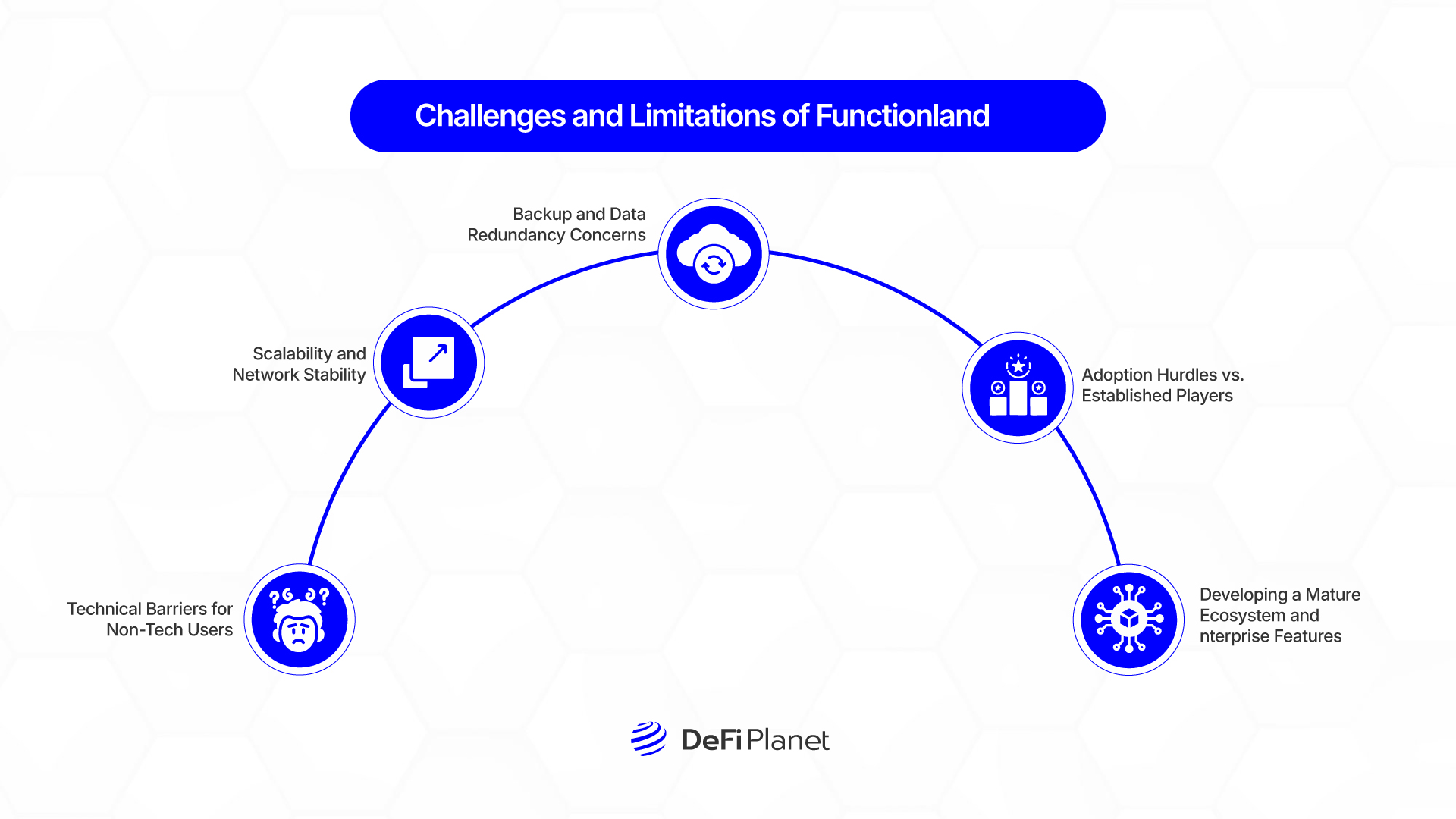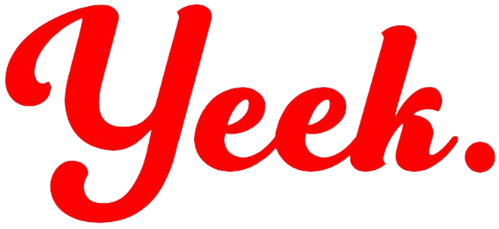Traditional cloud services like Dropbox and Google Drive make storing files easy, but at a cost. Users pay monthly fees, hand over control of their data, and trust corporations to keep their private files safe. These centralized platforms profit from your data while offering little transparency in return.
Functionland was created as a decentralized cloud storage alternative that gives users full ownership of their data. The Web3 cloud solution was founded by Keyvan Sadeghi and is backed by a team that includes former Robinhood and Amazon engineers, along with advisors from Protocol Labs.
Functionland decentralized storage runs on blockchain technology and open-source infrastructure, eliminating subscription fees, enhancing privacy, and rewarding users who contribute storage space through a community-driven model.
Let’s break down how Functionland works, compare it to traditional cloud providers, and explore its real-world usability, adoption challenges, and potential to disrupt the cloud storage market.
Can a Functionland decentralized storage really compete with Big Tech? Let’s dive in.
What Is Functionland and How Does It Work?
Functionland decentralized cloud storage platform, puts users in full control of their digital data. Unlike traditional services like Dropbox or Google Drive, it doesn’t rely on centralized servers or charge monthly subscription fees.
Instead, Functionland uses peer-to-peer technology, blockchain, and a plug-and-play hardware device called Bx (Box) to deliver a truly user-owned cloud experience.
The Web3 cloud solution lets you purchase the Bx device with a one-time payment. After that, you can use it to store your data freely, up to the device’s capacity. You can also join a community-hosted network where you can earn and use crypto-based rewards to share storage space without recurring fees. This makes it a cost-effective and long-term solution for storing large volumes of data.
How Does Functionland Work?
At the core of Functionland decentralized storage is the Fula Network, a P2P system designed for decentralized data management. In this network, each participant, or ‘peer,’ contributes storage and computing resources, creating a distributed infrastructure that enhances data availability and security by eliminating single points of failure.
The Fula Network utilises open protocols like libp2p and the InterPlanetary File System (IPFS) to facilitate seamless and secure data sharing among peers.
- Hardware Component: FxBlox
FxBlox is Functionland’s proprietary hardware designed to integrate seamlessly with the Fula Network. This device allows users to contribute storage and computing power to the network effortlessly.
FxBlox is engineered for low energy consumption and operates quietly without the need for active cooling systems. It supports various storage types via USB-C connections and includes a slot for an internal M.2 NVMe drive, enabling users to expand their storage capabilities as needed. There are two models, the FxBlox Lite and FxBlox Lite Plus.
FxBlox is engineered for low energy consumption and operates quietly without the need for active cooling systems. It supports various storage types via USB-C connections and includes a slot for an internal M.2 NVMe drive, enabling users to expand their storage capabilities as needed. There are two models, the FxBlox Lite and FxBlox Lite Plus.
- Software Applications: FxFotos and FxFiles
Functionland offers dApps that provide user-friendly interfaces for interacting with the Fula Network:
- FxFotos: A gallery application that synchronizes media files with the Fula decentralized cloud, serving as an alternative to traditional photo storage services.
- FxFiles: A file manager that allows users to synchronize any file with the Fula Network, facilitating secure and private file storage and management.
These applications enable users to maintain control over their data while benefiting from the security and redundancy of decentralized storage.
- Blockchain Integration and the FULA Token
Functionland decentralized storage incorporates blockchain technology to manage data proofs and facilitate transactions within the network. The Fula blockchain serves as a ledger for rewards and payments to storage providers.
The FULA token is the native cryptocurrency of the Functionland ecosystem, serving multiple roles to ensure the platform’s functionality and growth.
Native Token Uses
- Governance: FULA token holders have the right to participate in the network’s governance. This includes voting on key decisions such as protocol upgrades and changes to the network’s development direction.
- Staking: By staking FULA tokens, users can earn rewards over time, contributing to the network’s security and stability. Staking also allows users to access reduced storage costs and publish new plugins.
- Transaction Fees: FULA tokens are used to pay for decentralized storage services and to access premium application functionalities within the Functionland ecosystem.
Rewards for Network Participants
- Validators: Individuals who act as validators, collators, or nominators within the network are compensated with FULA tokens for their role in maintaining the network’s integrity and performance.
- Storage Providers: Users who provide storage resources to the network are rewarded with FULA tokens, incentivizing the expansion of decentralized storage capacity.
- Application Developers: Developers who create and publish open-source applications on the Functionland platform can earn FULA tokens as compensation for their contributions, fostering innovation and the growth of the ecosystem.
By integrating these mechanisms, the FULA token plays a central role in promoting a decentralized, user-driven environment within Functionland.
To ensure data security and user privacy, the Web3 cloud solution employs several measures:
- Decentralized Identity (DID): Provides users with control over their digital identities without relying on centralized authorities.
- Encryption: All data stored and transmitted within the Fula Network is encrypted, protecting it from unauthorised access.
- Data Sharding and Replication: Files are divided into smaller pieces (shards) and replicated across multiple nodes, enhancing data availability and resilience.
- Decentralized Physical Infrastructure Network (DePIN) and AI Integration
Functionland extends its decentralized approach to physical infrastructure and artificial intelligence:
- DePIN: By leveraging user-contributed hardware like FxBlox, Functionland creates a decentralized physical infrastructure network that supports various services without centralized data centers.
- AI-Native Infrastructure: The platform supports AI workloads by providing distributed storage and compute power, enabling developers and enterprises to access affordable resources for AI innovation without relying on centralized service providers.
The Functionland decentralized storage approach emphasizes user control, privacy, and community-driven growth, positioning it as a comprehensive solution for data management.
How Does It Compare to Dropbox?

User Adoption and Community Feedback
While specific demographic data on Functionland’s user base is limited, the platform’s open-source nature and emphasis on data ownership appeal to individuals and organizations seeking alternatives to traditional, centralized cloud services.
The community’s engagement is evident through active participation in Functionland’s GitHub repositories, where users and developers collaborate on projects, report issues, and contribute code. The Functionland GitHub organization hosts numerous repositories, including projects like ‘fx-fotos,’ an open-source gallery app, and ‘go-fula,’ a client-server stack for Web3 applications.

These repositories exhibit consistent commit activity and community contributions, reflecting a vibrant and engaged developer community.
Challenges and Limitations of Functionland
Functionland, as an emerging Web3 cloud solution, faces several challenges and limitations that could impact its adoption and user experience:

-
Technical Barriers for Non-Tech Users
Setting up and using Functionland’s services can be complex for individuals without technical expertise. Users have reported difficulties during the initial setup process, including encountering misspellings in the app and a lack of clear instructions, which can deter non-technical users from fully utilizing the platform.
-
Scalability and Network Stability
As a decentralized network, Functionland’s performance depends on the collective contribution of its users. Ensuring consistent network stability and scalability is challenging, especially during periods of rapid growth or fluctuating user participation. Maintaining a seamless experience requires continuous monitoring and optimization of the network’s infrastructure.
-
Backup and Data Redundancy Concerns
In decentralized storage systems, data redundancy and backup mechanisms are crucial to prevent data loss. Functionland needs to implement robust strategies to ensure that users’ data is duplicated across multiple nodes, safeguarding against potential hardware failures or network issues. The effectiveness of these measures directly impacts user trust and data integrity.
-
Adoption Hurdles vs. Established Players
Competing with well-known cloud storage providers like Dropbox and Google Drive presents significant challenges. These incumbents offer mature, user-friendly platforms with extensive features and integrations.
Functionland needs to clearly communicate its unique value propositions, such as enhanced privacy and data ownership, to attract users away from these established services.
-
Developing a Mature Ecosystem and Enterprise Features
Currently, Functionland’s ecosystem is in its nascent stages, with limited applications and integrations. The absence of comprehensive enterprise features, such as advanced collaboration tools and third-party app support, may deter businesses seeking a full-fledged cloud storage solution.
Expanding the platform’s capabilities and fostering a robust developer community are essential for broader adoption.
Addressing these challenges is vital for Functionland to enhance user experience, ensure data security, and compete effectively in the cloud storage market.
Final Thoughts
Functionland decentralized storage has the potential to change the way we think about cloud computing by giving users more control over their data, improving security, and protecting privacy. However, for more people to adopt it, the technology needs to be easier to use, more scalable, and better suited for non-technical users. There also needs to be clearer regulations and more education on its benefits to help people feel confident in making the switch.
As decentralized systems grow, they could significantly alter the cloud storage world. By using a decentralized approach, we can rely less on energy-heavy data centers, making the process more eco-friendly. Plus, these systems offer better data redundancy, meaning your information is safer and more available, even if something goes wrong.
In the future, decentralized storage could give users and content creators more power over their data, allowing for greater control and new ways to make money. As these systems improve and overcome their challenges, they could lead to a more secure and fair digital environment for everyone.
Disclaimer: This article is intended solely for informational purposes and should not be considered trading or investment advice. Nothing herein should be construed as financial, legal, or tax advice. Trading or investing in cryptocurrencies carries a considerable risk of financial loss. Always conduct due diligence.
If you would like to read more articles like this, visit DeFi Planet and follow us on Twitter, LinkedIn, Facebook, Instagram, and CoinMarketCap Community.
Take control of your crypto portfolio with MARKETS PRO, DeFi Planet’s suite of analytics tools.”

